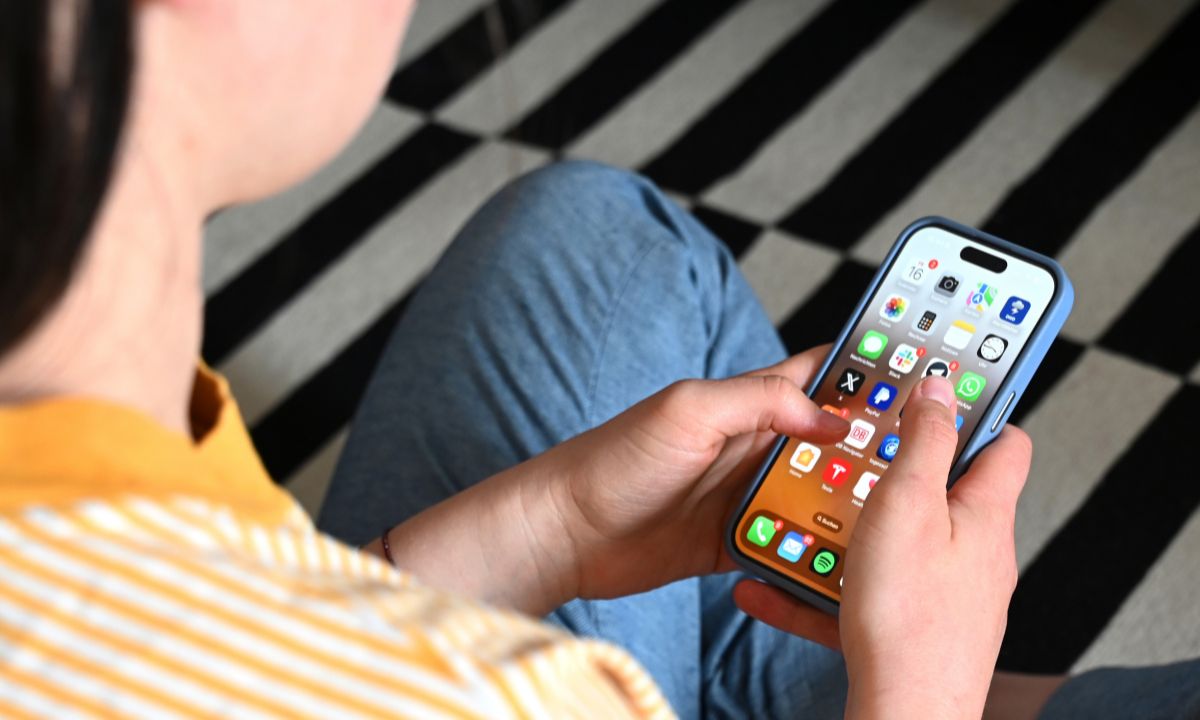A Student’s View: A Device Ban Won’t Fix Education
Coral: Cell phone use is a problem, but a new Georgia law will add to teacher workloads rather than directly alleviating the technology crisis.

Get stories like this delivered straight to your inbox. Sign up for The 74 Newsletter
This spring, Georgia Gov. Brian Kemp signed the “Distraction-Free Education Act” into law, requiring Georgia school systems to adopt policies that prohibit access to personal electronic devices during the entire school day for students in kindergarten through eighth grade.
The measure classifies devices as any piece of technology that can access the internet, data or media, including cell phones, tablets, headphones, smartwatches, and even e-readers. These devices can still be brought to school, but they must be put away in lockers, a classroom caddy, or a phone-locking pouch.
As a rising high school senior, I recognize this is an important step. But I firmly believe this new law will add to each teacher’s workload rather than directly alleviating the technology crisis.
To understand the extent of the problem, I recently spoke with my English teacher’s fourth grade son. He told me that a handful of his classmates are actively on their phones during class, specifically “playing Minecraft or watching YouTube.” Although this may seem insignificant, his account is staggeringly different from my own fourth-grade experience just seven years ago. Neither my peers nor I ever brought a personal device to school.
What caused this increase in device usage? It may have something to do with the overall increase in children’s tech ownership.
Common Sense Media’s 2025 Census Report reveals that 51% of children under age 9 owned a personal mobile device in 2024, a more than fourfold increase from the 12% ownership rate in 2013.
The effects are obvious at my high school. I’m accustomed to seeing my peers sneak a look at their phones to search for answers, swipe-text on their Apple Watches, and watch movies on their personal computers, leading to minimal learning. Why pay attention in U.S. history when ChatGPT can tell you what détente is? Why learn the equation of a circle if Gauth can solve a geometry problem within seconds? And, with this level of exploitation in high schools, what’s preventing our elementary and middle school students from doing the same?
However, it’s not clear that a legislative ban will fix the problem. The bill leaves punishment up to local districts, suggesting a verbal warning or device confiscation. These proposed penalties leave one party responsible: teachers.
By passing the buck onto educators, a technology ban may be rendered useless. I saw this in my own high school this past school year. Our administration provided each classroom with a numbered phone caddy, requiring all students to put away their cell phones in their designated spot. Teachers followed the rule stringently in August then became increasingly lenient. By October, the policy was rarely obeyed; for the remaining school year, phones were only found in the caddy if an administrator was observing the classroom.
If phone bans aren’t going to be followed, how can we fix class disengagement?
One thought is creating engaging lectures. For example, my psychology class used a random popsicle-stick method. A cup has popsicle sticks, each with every student’s name. When our teacher asked a question, she pulled a stick and called on that student. This prompted us to pay attention, as we never knew who would be called.
A teacher could complement this with a weekly participation grade, compelling students to focus and give every question their best shot. During our conditioning unit, my psychology teacher gave us a star stamp if we answered a question correctly. With 16 stars, we could go into the treasure box, which included erasers, candy, and +10-point passes. Despite its simplicity, this method worked. Students were more attentive and eager to answer questions. By increasing student engagement, educators could see more motivated classes.
Aside from teaching methods, teachers could implement simple fixes for tests to prevent cheating. During test days, my Spanish teacher required all bookbags to be placed at the front of the classroom. On TikTok, I’ve heard some schools follow an “empty your pockets” policy, negating the need to worry about hidden notes or phones. Taking away cheating methods could motivate students to care more and actually learn class content.
The new Georgia law also urges districts to promote distraction-free learning and less personal device use to families, suggesting town halls and workshops. This is where I see the most benefit.
If our government used its bully pulpit to inform parents about device-free activities and methods to lessen tech use in the home, both families and the education system could see staggering benefits. As parents become more informed, their kids could become less reliant on devices, alleviating the need for a full ban in the first place. It is through educating the public that we could see improvements in technology use.
Of the nine states that have enacted technology restriction legislation in their public schools, only Virginia has incorporated a clause that advises districts to promote healthy device use. With Georgia becoming the second state to enact a law with such a provision, this could set a precedent and spark a movement in our nation to educate families about the dangers of technology reliance.
Educators and parents need to recognize the destruction personal technology has had on our educational system. Our privilege to learn is diminished when technology is easily accessible in the back of our pockets. Yet, creating legislation to ban devices only hinders our teachers from teaching. Instead, through some classroom changes and district initiatives that promote healthy technology use, we can make a dent in this crisis and get back to what really matters: learning.
Get stories like these delivered straight to your inbox. Sign up for The 74 Newsletter

;)
